Evans Off Camber - Basic Training

Helping novice riders is good for both you and motorcycling
The cliché about doctors is that people are always asking them about their health concerns – even when they’re not in the office. Well, one of the occupational hazards of being a motojournalist is having people feel compelled to tell you their opinions about motorcycles.
The first group wants to save me by describing how dangerous motorcycles are and listing friends/family members/acquaintances/people they saw on the news who have faced some horrible situation as a result of motorcycling. You know, the old “injury and/or death” statements better left to the liability waivers we have to sign before taking part in many of life’s more enjoyable activities. In these instances, I smile politely and end the conversation as soon as possible. After 26 years in the saddle, I’ve got a pretty good idea of what can happen out on the road.
Another, more pleasant situation I frequently face is the guy (and, unfortunately, about 80% of the time it is a guy) who buttonholes me to tell me how I’ve got the greatest job ever and how he really wants to get a bike because he had one as a kid and it was the best thing he ever did in his life or he’s always wanted one or he had one before he got married but was requested to give it up when he settled down and now is the time that he’s gonna start again or finally get his first bike. To each and every one of them, I ask what kind of bike sparks their fancy. How do they plan on using it: weekend cruises, touring, commuting or just posing? I listen to them all because the conversation usually excites them. Even if they never throw a leg over a motorcycle, I enjoy these exchanges for the simple fact that motorcycles – even in the abstract – are making these folks happy. It’s good for both the sport and the mood of all of us taking part in the conversation.
Evans Off Camber – Asphalt Doesn’t Care
However, only a select few move beyond these verbal fantasies and switch to asking about what I think the best way is for them to get started in/return to riding. When they do, I always respond the same way: Go to a motorcycle safety class. For starters, I don’t know of any other way to be initiated to riding. I’m a product of Connecticut’s motorcycle safety program, and in my first couple weeks on the road, I encountered situations which I’m certain that the techniques my instructors taught saved my hide – literally and figuratively. The funny thing is: The conversation usually changes course pretty quickly after I broach the subject of a MSF class.
The ones who continue the conversation, usually ask pointed questions about why I think training is important and then follow up with a discussion of the basic techniques. These are the people who I’ve learned are the ones most likely to pursue their curiosity about motorcycles. Ironically, about half of the people who get this far in the discussion are women. I’m sure there’s a reasonable explanation as to why such a large number of the male gender shy away from instruction, but my delicate male ego requires that I not consider this puzzler too closely.
In these conversations, I begin with the fact that riding a motorcycle is complicated and, at its most basic level, requires the operator perform five activities with four appendages. Next comes a brief discussion of countersteering which is often initially greeted with blank stares, but once we consider this single-track vehicle idiosyncrasy in the context of our natural inclination to steer away from things we don’t want to hit, the need from training begins to make a little more sense. We need to be taught to short-circuit our survival instincts. I then toss in the necessity of balancing the front and rear brake application to seal the deal. While you might think that going for the easier to understand physics surrounding proper braking technique would be a better entry into the discussion of training, in my experience, the opposite is true. Puzzling over a concept that doesn’t make sense on its surface opens the mind to learning.
So, why am I taking the time to (hopefully) preach to the choir about the importance of motorcycle safety classes? Because, even if the people we talk to never ride a motorcycle, we’ve done our small bit to improve the image of motorcyclists in the eyes of the non-riding public.
It’s also a good way to recapture that initial joy you felt when you first started riding – you know, the stuff that got you hooked on the sport in the first place. Hanging out with a novice during their initial months on a motorcycle, when everything is new and exciting, is a great contact high. Plus, discussing techniques makes you think about and improve your own. Helping someone become a proficient motorcyclist might gain you a new riding buddy – or three – but also consider it good karma for the sport as you aid rookies in navigating a time on two wheels where they are at greater risk, statistically, than at any other point in their riding lives.

Like most of the best happenings in his life, Evans stumbled into his motojournalism career. While on his way to a planned life in academia, he applied for a job at a motorcycle magazine, thinking he’d get the opportunity to write some freelance articles. Instead, he was offered a full-time job in which he discovered he could actually get paid to ride other people’s motorcycles – and he’s never looked back. Over the 25 years he’s been in the motorcycle industry, Evans has written two books, 101 Sportbike Performance Projects and How to Modify Your Metric Cruiser, and has ridden just about every production motorcycle manufactured. Evans has a deep love of motorcycles and believes they are a force for good in the world.
More by Evans Brasfield



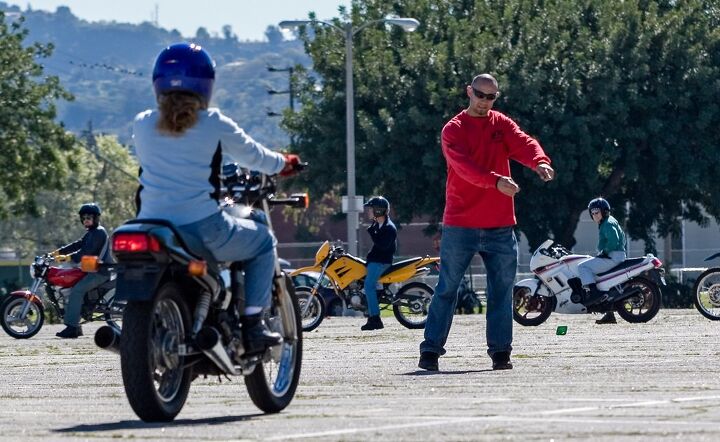
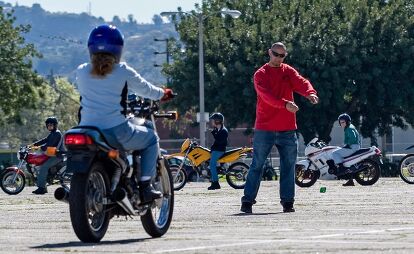








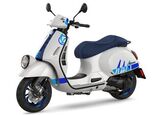








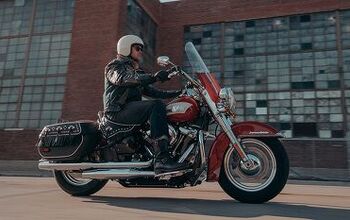



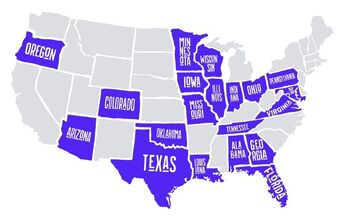

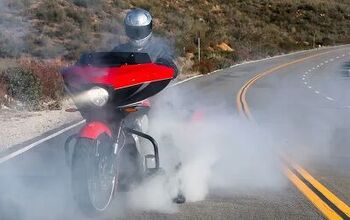






Comments
Join the conversation
I'm also a product of the Connecticut MSF program, 21 years ago. I want to become an instructor so I can help others learn to ride. I want some of that contact high too :)
I am a product of the UK's system, which requires quite a lot of training –– more than I received on an MSF course many years ago –– and I am currently looking to book myself in for advanced rider courses. It baffles me that someone would not want to take an MSF course. Why would you want to be one of those idiots duck walking a bike across a parking lot or hurtling yourself into a parked car with your feet on highway pegs? If I do something, I want to be good at it. Training is how that happens.